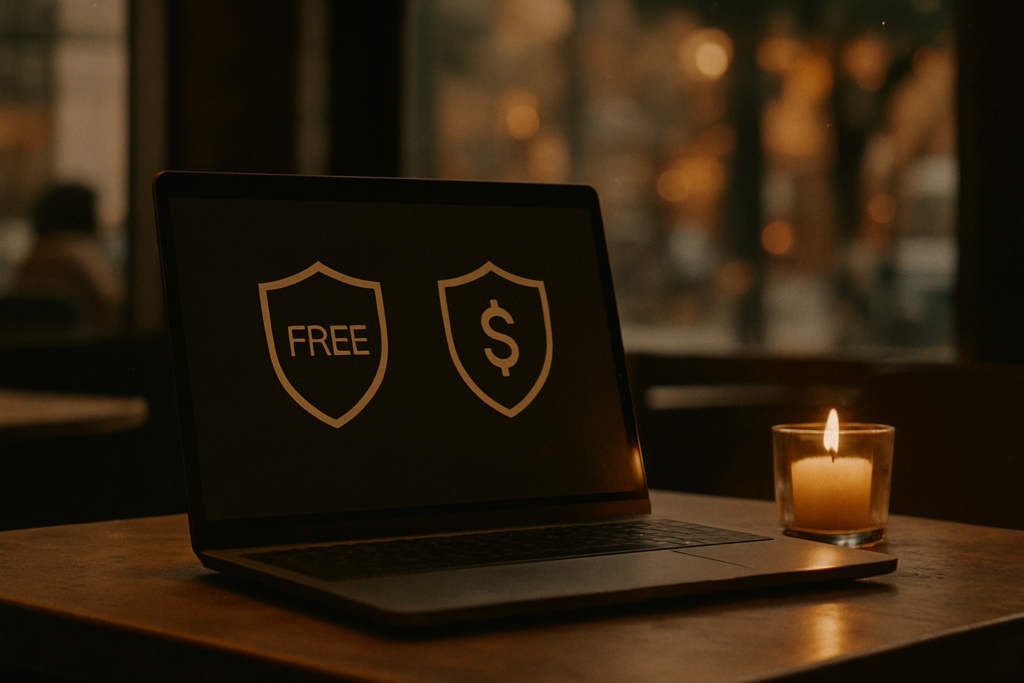Wondering whether to opt for a free or paid VPN service? As someone who values online privacy and security, I understand the importance of choosing the right VPN for your needs. In this article, I’ll delve into the debate between free and paid VPNs to help you make an informed decision.
With the increasing concerns about data privacy and cyber threats, selecting the right VPN is crucial. Free VPNs may seem appealing, but are they as reliable as their paid counterparts? I’ll share insights on the key differences between free and paid VPN services, highlighting the factors you should consider before making your choice.
Exploring the Differences Between Free and Paid VPNs
When considering VPN options, it’s crucial to understand the disparities between free and paid services. Free VPNs might seem attractive due to their cost, but they come with limitations. For instance, free VPNs often have slower connection speeds and may have a more limited selection of servers compared to paid VPNs.
In contrast, paid VPNs typically offer faster speeds, stronger encryption protocols, and a wider range of server locations to choose from. These features contribute to improved online security and a better overall browsing experience. Additionally, paid VPNs often have dedicated customer support, ensuring that any issues or concerns are promptly addressed.
One significant difference between free and paid VPN services is the level of privacy protection they offer. Paid VPNs usually have strict no-logs policies, meaning they don’t store user data or browsing history. This commitment to privacy is a crucial factor for individuals looking to safeguard their online activities from prying eyes.
Moreover, free VPNs may collect user data for marketing purposes or to generate revenue, potentially compromising user privacy. This trade-off between free access and privacy highlights the importance of carefully evaluating the VPN provider’s policies before making a choice.
While free VPNs can be appealing for budget-conscious users, paid VPN services generally offer superior performance, enhanced security features, and better privacy protection. Making an informed decision between free and paid VPNs depends on weighing these factors based on individual needs and priorities.
Factors to Consider When Choosing Between Free and Paid VPNs

When deciding between free and paid VPN services, it’s crucial to weigh various factors to make an informed choice that aligns with your needs and priorities.
Security Features Comparison
In comparing the security features of free and paid VPNs, it’s essential to recognize the disparities that exist. Paid VPN services typically offer robust encryption protocols like OpenVPN and advanced security features such as a kill switch and DNS leak protection. These aspects ensure that your online activities remain secure and private.
On the other hand, free VPNs may have limited security features, potentially leaving your data vulnerable to cyber threats. Some free VPNs might not employ strong encryption methods, making it easier for unauthorized parties to intercept your information. This disparity in security measures underscores the importance of opting for a paid VPN service if stringent security is a top priority for you.
Bandwidth and Speed Consideration
When considering bandwidth and speed, paid VPNs often outperform their free counterparts. Paid VPN services typically invest in high-speed servers and sufficient bandwidth to deliver seamless browsing, streaming, and gaming experiences. The premium nature of these services ensures minimal latency and faster connection speeds.
In contrast, free VPNs might impose limitations on bandwidth, leading to slower speeds and potential interruptions in your online activities. The restricted bandwidth offered by free VPNs can result in buffering issues while streaming content or delays in loading web pages. Therefore, if speed and consistent performance are critical to your online activities, opting for a paid VPN service is the recommended choice.
Pros and Cons of Free VPNs
Exploring the world of VPN services, particularly free options, can provide various advantages and drawbacks. In this section, I’ll outline the pros and cons of utilizing free VPNs to help you make an informed decision regarding your online security and privacy.
Pros of Free VPNs
- Cost-Efficient Option: One of the primary benefits of free VPN services is that they do not require a financial commitment, making them a cost-effective solution for individuals on a budget.
- Basic Security Measures: Free VPNs typically offer basic security features like encryption and masking of your IP address, which can help protect your online activities to some extent.
- Access to Geographically Restricted Content: Some free VPN providers allow users to bypass geo-restrictions and access content that may be limited in their region.
- Limited Security Protocols: Free VPN services often lack robust security protocols compared to their paid counterparts, potentially making your online data more vulnerable to cyber threats.
- Data Logging and Privacy Concerns: Several free VPN providers may log your online activities or sell your data to third parties for advertising purposes, compromising your privacy.
- Bandwidth Restrictions and Slow Speeds: Free VPNs commonly impose bandwidth limitations and may have slower connection speeds due to the high number of users sharing limited server resources.
While free VPN services offer cost savings and basic online protection, they come with limitations such as reduced security, potential privacy risks, and slower speeds. It’s essential to weigh these pros and cons carefully to determine if a free VPN aligns with your specific online security needs and preferences.



